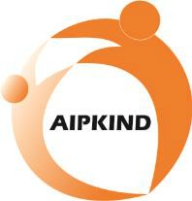The Effectiveness of Health Education Using Si NaNing Module to Increase Independence in Stunting Prevention
Abstract
One of the public health problems that occur in infants and toddlers on Indonesia is stunting. The prevalence of stunting in the Riau Island Province SSGI data for 2021 shows an increase in the prevalence of stunting from 7.21% to 17.6%. One of the efforts to prevent stunting is to overcome anemia. The prevalence rate of anemia is still high due to the low level of adherence of pregnant women in taking iron supplements. This study aimed for accurate, precise, and up-to-date information to prevent anemia and stunting. The purpose of this study was to determine the effect of Si NaNing Module on the independence of pregnant women in preventing anemia and a quasi-experimental conducted in Tanjungpinaa ng City from May to October 2022. The research design was a quasi-experimental design with a pre-posttest with control group design. The instrument used is a questionnaire. The population in this study were all pregnant women in Tanjungpinang City. The sample in this study were 100 experimental respondents and 100 control respondents. Data analysis used the T test. The results showed that there was an effect of the module on responsibility (p-value 0.001), autonomy (p-value 0.001), initiative (p-value 0.001), and self-control (p- value 0.001) on anemia prevention and stunting. Thus, the Si NaNing Module can be used as an effort to increase mother's independence in preventing anemia and stunting.
Keywords
Full Text:
PDFReferences
Kementerian Kesehatan Republik Indonesia, “Peraturan Presiden Nomor 42 Tahun 2013 tentang Gerakan Nasional Percepatan Perbaikan Gizi”. Jakarta: Kementerian Kesehatan Republik Indonesia, 2021.
Kementerian Kesehatan Republik Indonesia, “Buku Saku Hasil Studi Status Gizi Indonesia Tingkat Nasional, Provinsi, dan Kabupaten/Kota Tahun 2019”. Jakarta: Kementerian Kesehatan Republik Indonesia, 2019.
Dinas Kesehatan Provinsi Kepulauan Riau, “Data Stunting Baduta Pendek dan Sangat Pendek Berdasarkan Data E-PPGBM”. Kepualauan Riau, 2020.
Kementerian Kesehatan Republik Indonesia, “Buku Saku Hasil Studi Status Gizi Indonesia Tingkat Nasional, Provinsi, dan Kabupaten/Kota Tahun 2021”. Jakarta: Kementerian Kesehatan Republik Indonesia, 2021.
S. Wanabuliandari and S. Dwi Ardianti, “Pengaruh Modul E-Jas Edutainment terhadap Karakter Peduli Lingkungan dan Tanggung Jawab”. J. Pendidik. dan Kebud., Vol. 8, No. 1, 2018.
Andriani, Wa Ode Sri, Farid Rezal, and Wa Ode Sitti Nurzalmariah. “Perbedaan Pengetahuan, Sikap, dan Motivasi Ibu Sesudah Diberikan Program Mother Smart Grounding (MSG) dalam pencegahan stunting di wilayah kerja Puskesmas Puuwatu Kota Kendari Tahun 2017”. Diss. Haluoleo University, 2017.
Yusnitasari, Andi Selvi, et al., "Edukasi Kesehatan dengan Metode Konvensional dan E-Book Terhadap Perubahan Perilaku Berisiko pada Remaja". Molucca Medica 15(1): 60-68, 2022.
Alber, Julia M., et al., "Social Media Self- efficacy of Health Education Specialists: Training and Organizational Development Implications". Health Promotion Practice 17(6): 915-921, 2016.
R. Linda, Zulfarina, Mas’ud, and T. Pratama Putra, “Peningkatan Kemandirian dan Hasil Belajar Peserta Didik Melalui Implementasi E- Modul Interaktif IPA Terpadu Tipe Connected Pada Materi Energi SMP/MTs”. J. Pendidik. Sains Indonesia, Vol. 9, No. 2, 2021.
Kamali, Sudabeh, et al., "Health Information Needs of Pregnant Women: Information Sources, Motives and Barriers". Health Information & Libraries Journal 35(1): 24-37, 2018.
L. Widawati, “Hubungan Otonomi dengan Regulasi Diri pada Bidang Akademik Siswa SMU Terpadu”. Mimbar, Vol. XXV, No. 1, pp. 185–198, 2008.
T. Abad, P. Ariadi, C. Dinata, and M. Zainuddin, “Self-Regulated Learning Sebagai Strategi Membangun Kemandirian Peserta Didik Dalam Menjawab”. pp. 139– 146, 2016.
Elsharkawy, Nadia B., et al., "Effectiveness of Health Information Package Program on Knowledge and Compliance among Pregnant Women with Anemia: A Randomized Controlled Trial". International Journal of Environmental Research and Public Health 19(5): 2724, 2022.
Suyidno, S. Haryandi, K. Maharani, and M. A. Muzakkir, “Melalui Pembelajaran Kreatif Berbasis Otonomi di Masa Pandemi Covid- 19”. Pros. Semin. Nas. Lingkung. Lahan Basah, Vol. 6, No. April, pp. 1–5, 2021.
Gusnita, Melisa, and Delyana, H, “Kemandirian Belajar Siswa Melalui Model Pembelajaran Kooperatif Think Pair Square (TPSq)”. Jurnal Absis, Vol. 3, No. 2, pp. 286- 296, 2021.
Ria Pratama, D., Widyatmoko, A., and Urwatin Wusqo, I., “Pengaruh Penggunaan Modul Kontekstual Berpendekatan SETS Terhadap Hasil Belajar dan Kemandirian Peserta Didik Kelas VII SMP”. Unnes Science Education Journal, Vol. 5, No. 3, pp. 1366-1378, 2016.
Candra Kusuma, A. Rakhman, and D. Fitria Brilianti, “Pengaruh Kemandirian Belajar Terhadap Prestasi Mahasiswa Pada Pembelajaran E-Learning Berbantuan Modul”.
J. Pendidik. Mat., Vol. 4, No. 2, 2020.
Y. Adi Perdana, A. Kumara, and D. Setiawati, “Pelatihan Self-Control For Pupils (Stop) untuk Meningkatkan Kontrol diri Siswa SMP”. Gadjah Mada J. Prof. Psychol., Vol. 4, No. 2, pp. 175– 184, 2018.
H. Relita Vertikasari Sekarningrum, G. Ari Nugrahanta, and I. Kueniastuti, “Pengembangan Modul Permainan Tradisional Untuk Karakter Kontrol Diri Anak Usia 6-8 Tahun”. Elem. Sch., Vol. 8, 202
DOI: https://doi.org/10.31983/jkb.v13i1.9650
Article Metrics
Refbacks
- There are currently no refbacks.
Abstracted/Indexed by:
Jurnal Kebidanan by http://ejournal.poltekkes-smg.ac.id/ojs/index.php/jurkeb is licensed under a Creative Commons Attribution-ShareAlike 4.0 International License.
View My Stats aw
.png)
.png)




.png)






